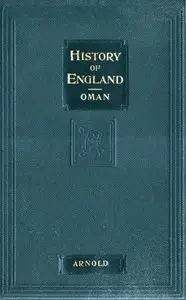"King Henry IV, the Second Part" by William Shakespeare is a historical drama that explores the challenges of kingship and the tangled webs of loyalty during a time of unrest, where a kingdom grapples with rebellion and the weight of its crown. The story kicks off with the embodiment of gossip setting the stage for a series of uncertain events following a major battle, revealing doubts about who survived and questions of victory. A central character is a fun-loving knight, who uses his wit to navigate friendships and political games, as the ambitious Prince juggles duty with desire, loyalty, and honor, while the play weaves together lighthearted moments with the serious issues facing the monarchy. This creates a compelling look at the struggles of power.

King Henry IV, the Second Part
By William Shakespeare
Amidst war and whispers, a prince must prove his worth, choosing between duty and desire as a kingdom teeters on the edge of chaos and camaraderie.
Summary
About the AuthorWilliam Shakespeare was an English playwright, poet and actor. He is widely regarded as the greatest writer in the English language and the world's pre-eminent dramatist. He is often called England's national poet and the "Bard of Avon". His extant works, including collaborations, consist of some 39 plays, 154 sonnets, three long narrative poems and a few other verses, some of uncertain authorship. His plays have been translated into every major living language and are performed more often than those of any other playwright. Shakespeare remains arguably the most influential writer in the English language, and his works continue to be studied and reinterpreted.
William Shakespeare was an English playwright, poet and actor. He is widely regarded as the greatest writer in the English language and the world's pre-eminent dramatist. He is often called England's national poet and the "Bard of Avon". His extant works, including collaborations, consist of some 39 plays, 154 sonnets, three long narrative poems and a few other verses, some of uncertain authorship. His plays have been translated into every major living language and are performed more often than those of any other playwright. Shakespeare remains arguably the most influential writer in the English language, and his works continue to be studied and reinterpreted.



















